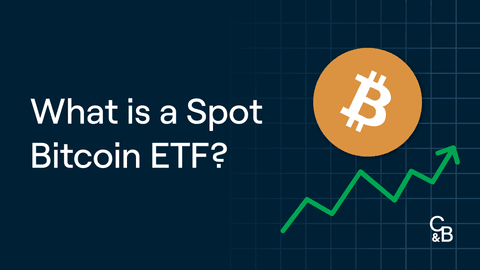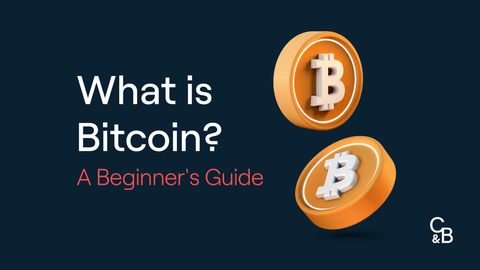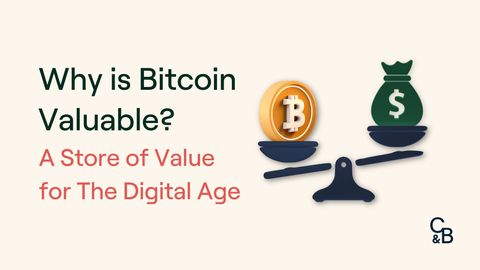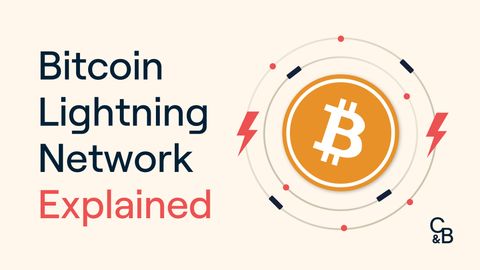This is where it all started, 13 years ago. A transaction of 10 bitcoins (BTC) to a renowned cryptographer, Hal Finney.
And as the years went on, we saw Bitcoin grow. Exponentially grow. Now, it is the largest cryptocurrency by market capitalisation, and by far the most known crypto to investors and non-investors alike.
You’ve read the stories, you’ve followed the market, and now you’re finally ready to get your hands on Bitcoin for the first time. Not sure where to start? Keep reading for our simple, straightforward guide to buying Bitcoin today.
Key Points
- The author of Bitcoin’s whitepaper, Satoshi Nakamoto, is quite cryptic himself. No one fully knows who the pseudonym belongs to, or if it’s a group of people.
- Bitcoin is the first and most widely available cryptocurrency. As of April 2022, it accounts for 40% of the total crypto market capitalisation.
- Bitcoin is virtually impossible to hack, so hackers have resorted to exploiting investors and the infrastructure built around Bitcoin, instead of the network. This is why it’s extremely important to only trade over a strong, secure internet connection.
- The Bitcoin 'halving' is an event that happens roughly every 4 years, in which the supply of Bitcoin produced by every block (known as a reward) is cut in half. Since the first event, the reward has dropped from 50 BTC to 25 BTC, then again to 12.5 BTC, and once more to 6.5 BTC.
What is Bitcoin?
Introduced in 2008, and first traded a year later on January 12, 2009, Bitcoin is a type of decentralised digital currency. It was the first cryptocurrency to be introduced to the public.
Free from direct control by governments or banks, Bitcoin uses peer-to-peer validation, proof of work, and automated deflation methodologies to maintain the network. Some users, known as validators, voluntarily participate in attesting to and confirming transactions on the network in exchange for rewards.
There are no physical bitcoins, only balances kept on a public ledger that everyone has transparent access to. All Bitcoin transactions are verified by a massive amount of computing power via a process known as “mining”.

Bitcoin is open-source; its design is public, nobody owns or controls Bitcoin and everyone can take part in contributing to the network. For these reasons, Bitcoin grew as an attractive currency and store of value alternative.
What is Bitcoin Used For?
Bitcoin was created as a secure, streamlined method for people to send money over the internet.
Presently, Bitcoin is a digital asset mainly used as a store of value. Some Investors purchase Bitcoin and hold onto it long term, with the expectation that its value will rise. Others trade Bitcoin over shorter time periods. Bitcoin can also be used to purchase goods and services over the internet without the need for a third-party merchant to process the transaction.
Since Bitcoin transactions are anonymous, it is often used to maintain the privacy of one or both transacting parties.
What Do You Need to Invest in Bitcoin?
Before taking on any financial endeavour, security should be your utmost priority. Yes, the Bitcoin blockchain is indeed practically impenetrable by hackers. But this doesn’t mean that your funds are fully secured. Fraudsters have found plenty of ways to steal from investors without even penetrating the code of Bitcoin’s blockchain. You’ll want to have a few things sorted before placing your first crypto order.
Secure Internet Connection
When completing a trade, make sure you are always using a secure, private connection. This isn’t much of an issue if you trade with a crypto brokerage though. Here at Caleb & Brown, we complete all trades on your behalf using extremely strict security protocols.
If you decide to enter the market through an exchange, a lack of security on your network could lead to stolen data. Some investors consider using a VPN for additional security. But you should check with your brokerage or exchange first to see if this is allowed.
Proper Storage
After you have the internet connection sorted you'll need to determine how to store your investment. There are two popular options for storage: hot wallets and cold wallets.
Hot wallets are connected directly to the internet; usually through a phone or desktop application. Their popularity lies in the ease of use, and ability to make trades quickly. Outside of KYC parameters, there is very little set-up time which makes these wallets very attractive to beginner investors.
Cold wallets are completely disconnected from the internet. As such, they cannot be easily hacked and are often seen as a safer option for infrequent traders. These storage devices often resemble USB flash drives. Keep in mind, though, that you can’t use any USB drive to store crypto. Cold wallets have additional built-in layers of security to prevent a data breach once you connect it to the internet for trading.
Another alternative is using a built-in wallet provided by your chosen exchange. There are some risks to this method, as you are leaving your crypto in the hands of a third party. Nevertheless, they are a breeze to set up if you’re only trading through one exchange. If you want to explore this route, make sure the exchange provides insurance for your crypto if there's ever a data breach on their end.
If you’re still having trouble determining what wallet type will work best for your trading needs, we can help you set this up during our investor onboarding process.
Further Reading: Crypto Security Part 1: Best Practices
How to Invest in Bitcoin
1. Decide Where to Buy Bitcoin
Now that the pre-investing work is done, it’s time to buy! Where is the best place to buy Bitcoin? What’s the best method? We’ll go through the three popular options as well as some alternatives below.
Exchange
There are hundreds of crypto exchanges out on the market. Given that they all function essentially the same way, we’ll just highlight the common characteristics across all exchanges.
Basically, these trading hubs function as third parties to facilitate trades. With an exchange, you’re free to trade however and whatever you want, provided it’s available on the exchange. With most exchanges, there are limits on pairing (assets that simultaneously represent two different coins, like BTC/ETH a.k.a Bitcoin/Ether). These limits on pairings reduce overall liquidity, which means you’ll be stacking up the transaction fees if you ever decide to exchange your current assets into a crypto where no direct pairing exists.
During times of high market volatility, you are susceptible to slippage on an exchange. Some assets have low liquidity which makes them prone to frequent price movements. The onus is on you to plan trades in a way that limits your transaction fees. This isn’t an exact science and depends on the condition of the market at the time you decide to purchase Bitcoin.
One final thing to note: customer service tends to be automated. If you need someone to answer and field your more complex crypto questions, you will find it hard to get a human being on the other end of the line.
Brokerage
Brokerages use a more supportive framework to make beginner trading simple and to execute advanced trades in fewer steps. For example at Caleb & Brown, you are paired with your own personal broker, on call to answer any crypto questions you have. When you’re ready to trade, you just send an email and the team of brokers & traders will lock in your request. No need to stay up at weird hours of the night to execute your trades.
In addition to executing Bitcoin trades on your behalf, our direct access to the market means we execute trades across an unlimited number of pairs. You as the trader don’t need to worry about paying transaction fees across each pairing. Instead, you simply pay one flat rate; a small percentage of the overall value of your trade.
Brokerages pride themselves on an extremely high level of customer service, and the use of a wider team of experts to execute your Bitcoin purchase in a way that aligns with your investment goals.
Other Alternatives
Although not as common brokerages and exchanges, you can also acquire Bitcoin through PayPal or a Bitcoin ATM. To purchase through PayPal, simply use the payment method connected to your account.
Since PayPal’s fee structure recently changed, you’ll need to do the math to determine if this is a viable trading option for you. Depending on the size of your purchase, you may end up paying more than intended in transaction fees.
If you find security in handling transactions with physical cash, a Bitcoin ATM may be ideal for you. A quick Google Maps search should pull up any ATMs within your area.
Before heading out, make sure you have a wallet set up and address details handy. You’ll need this information to send the Bitcoin you purchase to your personal wallet. Also, keep in mind that merchant fees will vary and may be proportionately higher for small transactions.
2. Buy Your Bitcoin
Now, it’s time to buy. Once you have an amount in mind, place your first order of Bitcoin through the trading platform of your choice. This is usually done through a connected bank card or a bank transfer made from your account.
Keep in mind transaction costs and any additional fees in relation to the size of your investment; especially if you’re not trading through a brokerage. Exchanges and ATMs will schedule your Bitcoin order the moment you put it through. You might be surprised by the additional fees tacked onto your order once the transaction is complete.
3. Await Confirmation
Once the order is placed, there will be a small wait for the asset to show up in your wallet. An average Bitcoin transaction takes about 10 minutes. Sometimes less. Sometimes an hour or more.

This transaction time is largely dependent on the current hashrate across the network (the speed at which Bitcoin miners validate transactions). It also depends on the methodology your trading platform uses to accept trade confirmations. Keep in mind that during busier times, centralised exchanges will often charge more in fees to process your transaction quickly.
The Investment Case For Bitcoin
Bitcoin's distinct features as a digital asset makes it a potentially attractive investment. These include:
- Digital Store of Value: Provided that investors continue to find value in Bitcoin, it could be a great inflation hedge due to its scarcity. With a limited supply of 21 million coins, combined with a healthy adoption rate, there is potential for Bitcoin to continue growing in value over time.
- Historical Trends: With a current price of $40,329.27, Bitcoin’s value has grown exponentially since its introduction over a decade ago at a compound annual growth rate of close to 200%. In this time, it became the best performing asset worldwide. Although past trends aren’t an indication of future ones, Bitcoin’s record of growth through volatility has influenced many investors to buy the cryptocurrency.
- Less Long-Term Volatility: Assets with high market capitalisations are typically associated with more stability. Given the amount of capital behind Bitcoin, and similarly high market capitalisation coins, it typically would take a significant event for the price to completely bomb overnight.
- Widespread Adoption: As of March 2022, 46 million Americans own Bitcoin. Its adoption rate has grown annually by 113%. Even the Internet couldn’t outpace this level of popularity during its early stages of public use.

- Network Effects: As more people invest in Bitcoin, its use cases become more valid. More people are willing to accept Bitcoin as currency or a store of value, helping to maintain its worth over time.
- Institutional Adoption: Out of the $9.3 billion of cryptocurrency flowing into traditional financial institutions in 2021, 66% consisted of Bitcoin, up from $6.8 billion in 2020. On a national level, governments like El Salvador have also made Bitcoin legal tender.
Ultimately, it’s up to the individual investor to determine if Bitcoin is the right investment for their situation.
Tips For Investing In Bitcoin
- As with traditional investing, it can be valuable to spread your investments across multiple assets to help negate the risk of an asset dropping in value. You may want to consider diversifying your portfolio to include assets other than Bitcoin.
Be wary of scams. If sending cash or crypto to an unknown wallet for the first time, consider sending a test amount and confirming with the recipient before sending the full amount.
Strategies For Investing In Bitcoin
When investing in Bitcoin, there are many strategies you can take. How you manage your cryptocurrency is totally up to you and how often you’d like to interact with the market. Below are a couple of the most common strategies.
- HODL: Short for ‘holding on for dear life’ this strategy involves buying bitcoin and holding on to it for the long term. Riding the waves of volatility in expectation of high returns over a long-term horizon. The popular term is derived from a misspelling of the word “hold”.
- Dollar-Cost Averaging (DCA): This strategy involves making routine smaller investments over time, instead of one lump sum. This method is used to counteract brief moments of volatility and takes the guesswork out of timing the market.

- Short-Term: These strategies tend to be more advanced as short-term traders must be on top of all possible market and Bitcoin trends. An example of this is momentum trading, which involves buying and selling crypto based on recent trends, and your own idea of how that might affect the market.
FAQs
How Much Is Bitcoin Right Now?
As of April 12, 2022, 1 Bitcoin(BTC) is worth $40,329.27.
How Much Bitcoin Should I Buy?
How much Bitcoin you buy depends largely on your investment goals. Subscribe to our Monthly Market Updates to get a complete overview of the current state of the market. This, along with your independent research should help you better understand how much Bitcoin you should buy.
Can You Buy Partial Bitcoin?
Yes, you can. In fact, only 2% of all investors own 1 BTC or more. The other 98% own fractions of a bitcoin commonly measured in satoshi (sat). 1 satoshi equals one hundred millionth of a single bitcoin (0.00000001 BTC).
Is There a Minimum Bitcoin Investment?
There is no minimum Bitcoin investment. Keep in mind that the platform that you trade may set its own minimum investment thresholds.
Can You Buy and Sell Bitcoin Within the Same Day?
If transaction speeds are optimal, you can buy and sell Bitcoin multiple times in one day. Unlike stock markets, the crypto markets are open 24/7 allowing you to trade as frequently as you wish. And if you use a centralised exchange or brokerage, transactions speeds will have no effect on your ability to trade Bitcoin.
Where is the Safest Place to Buy Cryptocurrency?
There are many safe ways to buy crypto in 2022, such as an exchange, brokerage, or ATM. If you’re looking for a personalised service through a broker to answer your questions and concerns, consider buying through a brokerage like Caleb & Brown. We have a battle-tested security infrastructure, through the leading asset security platform Fireblocks.
How to Buy Bitcoin Without Fees?
At the moment, there is no way to purchase Bitcoin without fees. While some exchange platforms may pitch zero or near-zero transaction fees, this is often an add-on to a premium paid service.
Get Started With Bitcoin
Bitcoin, the original cryptocurrency, has had a lasting impact on the way we conceptualise money.
If you’re ready to dive in and make your first Bitcoin purchase, Caleb & Brown is here to help. Trusted by over 20,000 investors across 100 countries, our dedicated team of experts works around the clock to carry out all your crypto trades.
Get set up with a personal broker today and you’ll receive a free security consultation, along with support to help you execute your first Bitcoin order.
Disclaimer: This assessment does not consider your personal circumstances, and should not be construed as financial, legal or investment advice. These thoughts are ours only and should only be taken as educational by the reader. Under no circumstances do we make recommendation or assurance towards the views expressed in the blog-post. The Company disclaims all duties and liabilities, including liability for negligence, for any loss or damage which is suffered or incurred by any person acting on any information provided.
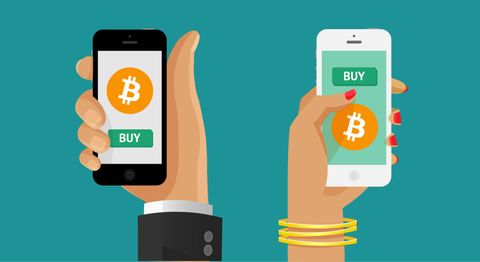
.jpg?u=https%3A%2F%2Fimages.ctfassets.net%2F4ua9vnmkuhzj%2FuIaUbUNRbO1LdljRWKvoI%2Fd93965ff275cd47f8c19fcc71edcd42e%2FBitcoins_Market_Cycle_V3-01__1_.jpg&a=w%3D480%26h%3D270%26fm%3Djpg%26q%3D80&cd=2023-02-21T06%3A17%3A39.793Z)
.jpg?u=https%3A%2F%2Fimages.ctfassets.net%2F4ua9vnmkuhzj%2F7meVnT2vnQelBrt6W5yw73%2F8469fbdea8168e404fff363b35dd65a4%2FBitcoin_Halving-01__1_.jpg&a=w%3D480%26h%3D270%26fm%3Djpg%26q%3D80&cd=2023-01-10T02%3A22%3A06.649Z)
